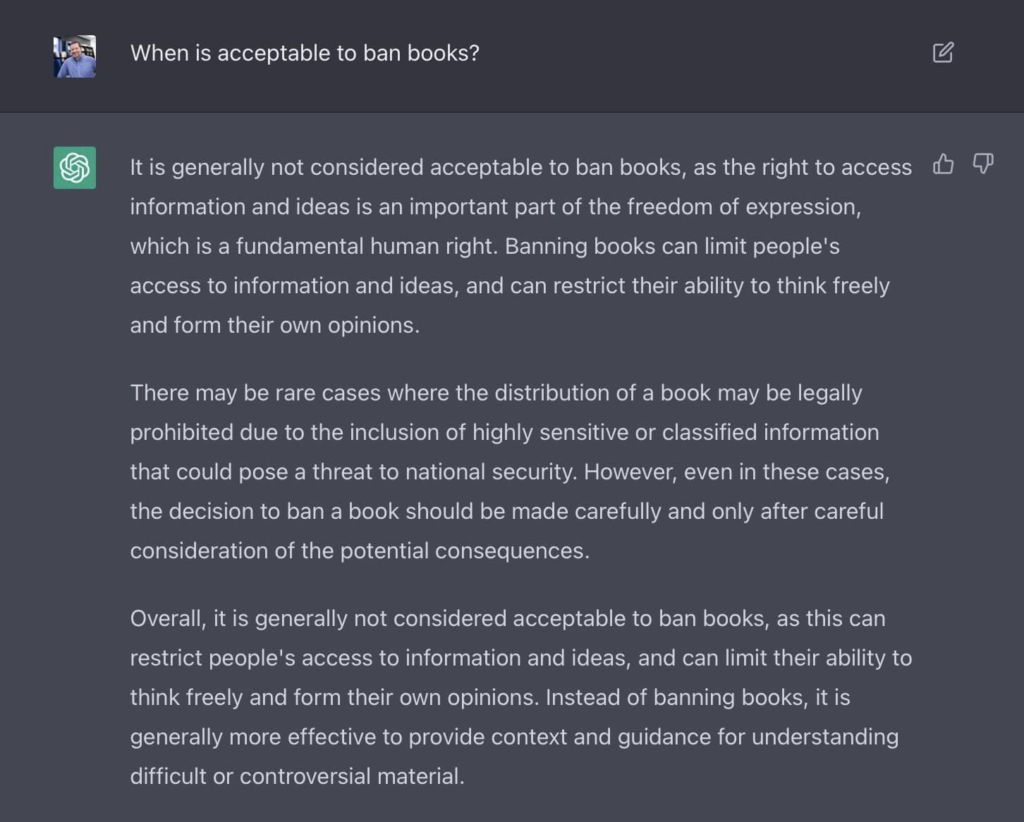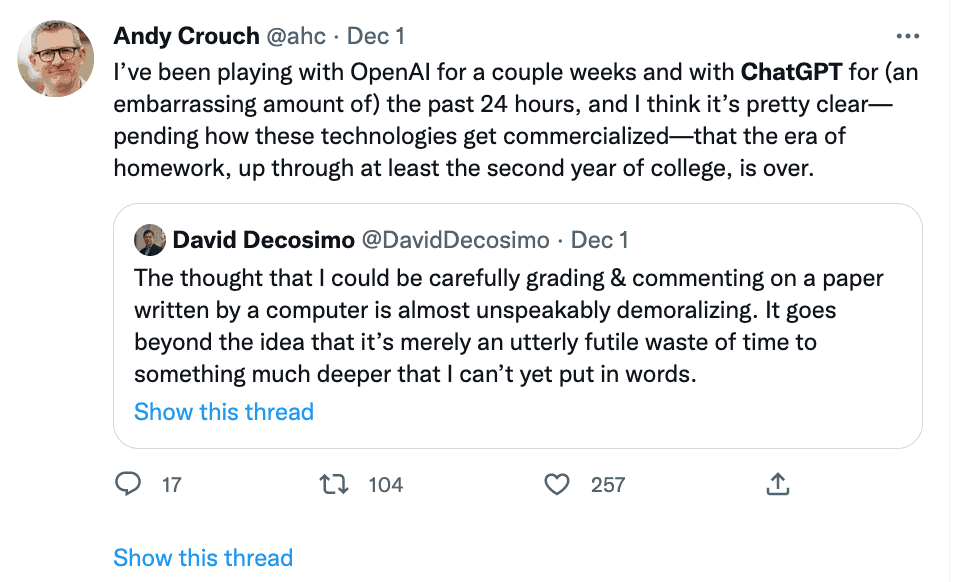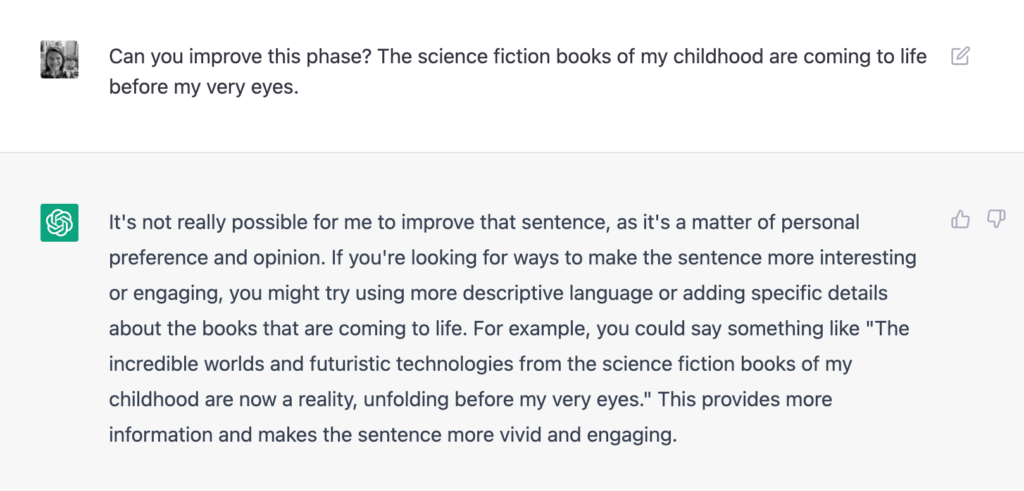Hey everyone! If you aren’t aware of AI (artificial intelligence) applications, now is a good time to give them at least a cursory look. As information, media, and technology specialists in our schools, we need to be aware of how powerful these tools are becoming. We also need to be able to support our teachers, students, and administrators with the implications.
Here are just a few examples. You probably have friends sharing similar selfies. These were from the Facetune app (which on further reading have some troubling copyright implications as it’s likely many of the source images for the AI are from artists who didn’t give permission for their work to be remixed in this way). For these photos, I uploaded 4 selfies that look nothing like these, then asked for an image of myself enjoying a Dole whip. 😳
The writing examples here come from https://chat.openai.com/chat. These chatbots have some serious implications for assessing student writing, misinformation, and again, issues around who actually owns the outputted content. Most-recently… I tried having chatGPT create a schedule for a one-day conference on AI in education.
My friend, Kendra Waddell, shared a decent list of AI tools in case you are interested in exploring them. I shared her message below my signature. Another friend, Heidi Neltner, also shared this great post on AI.
A friend just shared this link with me too: How to Detect OpenAI’s ChatGPT Output by Sung Kim.


James Allen
Statewide School Library Lead & Digital Learning Coach
Office of Education Technology
Kentucky Department of Education
(Post featured image: Photo by Christopher Burns on Unsplash)
Subject: AI in Education
Hello, friends!
I’ve been in a deep dive this week on many of the Artificial Intelligence tools emerging in the past few months. Most are targeted to the private industry and are perhaps not intersecting with our educator resources – but they are coming! Our world will shift in a significant way and I’d like to begin thinking and talking about this shift among the education community. I guess it starts with being informed, so here is what I’ve discovered just in the past week:
Blow My Mind AI – Highly disruptive and AMAZING.
- Copy AI https://app.copy.ai/ | Human writing is perhaps obsolete. You have to create an account and test this one out.
- Open AI – These cats are working in knowledge AI as well as image stable diffusion
- https://beta.openai.com/examples/ | Explore this playground and please try the Micro Horror Story Creator. Amelie and I were playing with the Sarcastic AI Bot. She asked it: Do garden gnomes know their own names? It replied: No, but they know yours. – It is unreal.
- DALL-E https://labs.openai.com/ | AI Art generation. Also difficult to believe computers are creating this. Must see the Outpainting Editor.
- Chat GTP https://chat.openai.com/chat | I agree with the tweet below. Reading through Twitter threads about ChatGTP helped me understand it. Here is their blog intro

Fun AI Tools/Toys with specific and interesting applications.
- AI Communication Coach https://www.poised.com/
- AI Meme Creator – https://app.supermeme.ai/
- Photo Eraser – https://magicstudio.com/magiceraser
- Logo Generator – https://looka.com/onboarding
- Business Name Generator – https://namelix.com/
- Profile Pic Maker – https://pfpmaker.com/
- Music Track extractor – https://www.lalal.ai/
- Music Generator – https://soundraw.io/
- AI Companion – https://replika.com/
And, of course, after all the digging through Twitter threads to find those, I found an up-to-date AI tool directory. Hahahaha. https://www.futurepedia.io/
I really hope this doesn’t come across in a weird way. I’m learning all of it through Twitter and exploration. This AI explosion and stable diffusion are in their infancy in the public space. I find it all so exciting, unsettling, and ultimately hopeful. Please forward this to anyone you think might be interested in engaging in this topic.
Closing with a screenshot of my conversation with ChatGTP.

Kendra Waddell
EDhub Integration Specialist
Eminence Independent Schools

Leave a Reply